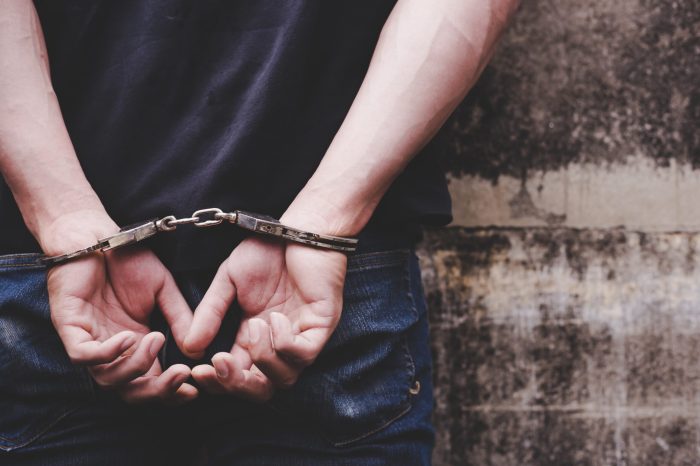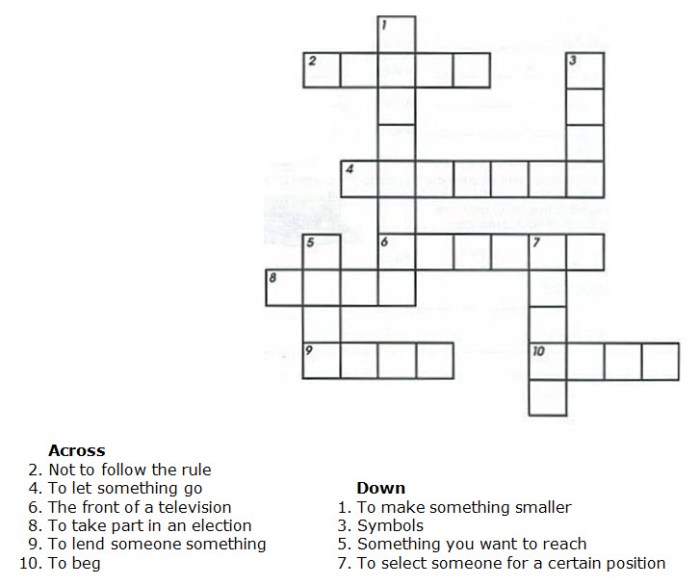Most serious in law crossword, delve into the realm of the most severe transgressions, where justice and consequence intertwine. From capital crimes to the nuances of felonies and misdemeanors, this exploration unveils the intricate tapestry of law’s most pressing concerns.
Unraveling the severity of crimes, we examine the delicate balance of intent, premeditation, and the profound impact of aggravating and mitigating circumstances. The legal consequences that await those who commit serious crimes loom large, as we navigate the complexities of imprisonment, fines, and the haunting specter of recidivism.
Serious Crimes
In common law, serious crimes are classified as felonies and misdemeanors, based on their severity and potential consequences.
Capital Crimes
Capital crimes are the most serious offenses, punishable by death or life imprisonment. Examples include murder, treason, and espionage.
Felonies
Felonies are serious crimes that are typically punishable by more than a year in prison. They include offenses such as robbery, burglary, and aggravated assault.
Misdemeanors, Most serious in law crossword
Misdemeanors are less serious crimes that are typically punishable by less than a year in prison or by fines. They include offenses such as petty theft, disorderly conduct, and traffic violations.
Severity of Crimes
The severity of a crime is determined by a complex interplay of factors, including the nature of the offense, the intent of the perpetrator, and the presence of aggravating or mitigating circumstances.
Intent and Premeditation
Intent plays a crucial role in determining the severity of a crime. Crimes committed with specific intent, such as murder or robbery, are generally considered more serious than those committed with general intent or recklessness. Premeditation, or the planning and deliberation of a crime, is also a significant factor in determining severity.
Aggravating and Mitigating Circumstances
Aggravating circumstances are factors that increase the severity of a crime, while mitigating circumstances are factors that decrease it. Aggravating circumstances can include the use of a weapon, the commission of a crime against a vulnerable victim, or the presence of a prior criminal record.
Mitigating circumstances can include factors such as the defendant’s age, mental state, or lack of prior criminal history.
When determining the appropriate sentence for a crime, courts consider both aggravating and mitigating circumstances to arrive at a just and proportionate punishment.
Legal Consequences
Committing serious crimes carries significant legal consequences, ranging from imprisonment to fines and probation. These consequences aim to punish the offender, deter future crimes, and protect society.
Types of Punishments
The type of punishment imposed depends on the severity of the crime, the offender’s criminal history, and other mitigating or aggravating factors. Common punishments include:
- Imprisonment:Involves confinement in a jail or prison for a specified period.
- Fines:Monetary penalties imposed by the court, often in addition to other punishments.
- Probation:A period of supervision in the community, subject to specific conditions set by the court.
Recidivism and Sentencing
Recidivism refers to the tendency of an offender to commit new crimes after being convicted. It is a significant factor in sentencing decisions, as it indicates a higher risk of future criminal behavior. Courts may impose harsher sentences on repeat offenders to deter further crimes and protect society.
Law Enforcement and Prosecution

Law enforcement agencies play a crucial role in investigating and prosecuting serious crimes. They are responsible for gathering evidence, identifying suspects, and building a case against them.
The process of investigating a serious crime typically involves several steps:
- Responding to the scene of the crime and securing it.
- Interviewing witnesses and collecting evidence.
- Identifying and apprehending suspects.
- Building a case against the suspects.
Once a case has been built, the prosecution will present it to a court of law. The prosecution must prove beyond a reasonable doubt that the defendant committed the crime.
Strategies for Preventing Serious Crimes
There are a number of strategies that can be used to prevent serious crimes. These include:
- Increasing police presence in high-crime areas.
- Implementing community policing programs.
- Educating the public about crime prevention.
- Providing support for victims of crime.
By implementing these strategies, we can help to reduce the incidence of serious crimes and make our communities safer.
Victim Impact: Most Serious In Law Crossword
Serious crimes leave a lasting impact not only on the victims but also on their families and loved ones. The physical, emotional, and psychological trauma can be profound, affecting their well-being and quality of life.
Victims may experience a range of emotions, including fear, anger, guilt, and shame. They may suffer from nightmares, flashbacks, and anxiety. Physical injuries can result in chronic pain, disability, or even death. In addition, victims may face financial difficulties, relationship problems, and social isolation.
Role of Victim Advocacy Groups
Victim advocacy groups play a vital role in supporting victims of serious crimes. They provide a range of services, including emotional support, legal assistance, and practical help with matters such as housing, transportation, and medical care.
Advocacy groups also work to raise awareness about the impact of crime on victims and to advocate for their rights. They lobby for legislation that supports victims and helps them access the services they need.
Justice System’s Response
The justice system has a responsibility to address the needs of victims of serious crimes. This includes providing them with access to justice, protection from further harm, and support to help them recover from the trauma they have experienced.
Courts can impose sentences that reflect the seriousness of the crime and provide victims with a sense of justice. They can also order restitution to compensate victims for their losses. In addition, the justice system can provide victims with access to counseling, support groups, and other services to help them cope with the aftermath of crime.
Sentencing and Punishment
Sentencing and punishment are crucial aspects of the criminal justice system, aimed at holding offenders accountable for their actions and protecting society. This process involves determining an appropriate sentence that considers the severity of the crime, the offender’s culpability, and the potential for rehabilitation.
Sentencing guidelines provide a framework for judges when determining the appropriate sentence for a particular crime. These guidelines vary across jurisdictions but generally consider factors such as the nature and seriousness of the offense, the offender’s criminal history, and any mitigating or aggravating circumstances.
Sentencing Guidelines
The following table provides a general overview of sentencing guidelines for different levels of serious crimes:
| Crime Level | Sentencing Range |
|---|---|
| Low-Level Felony | Up to 5 years imprisonment |
| Mid-Level Felony | 5 to 10 years imprisonment |
| High-Level Felony | 10 years imprisonment or more |
In addition to sentencing guidelines, judges also consider several factors when determining an appropriate sentence, including:
- The offender’s age, mental health, and capacity
- The offender’s role in the crime
- The offender’s prior criminal record
- The victim’s impact statement
- The potential for rehabilitation
Rehabilitation
Rehabilitation is a key consideration in sentencing, as it aims to address the underlying factors that may have contributed to the offender’s criminal behavior and reduce the likelihood of recidivism. Rehabilitation programs may include educational opportunities, job training, counseling, and substance abuse treatment.
By considering these factors, judges strive to impose sentences that are fair, just, and effective in protecting society while also providing opportunities for rehabilitation and redemption.
Constitutional Considerations

Individuals accused of serious crimes are entitled to specific constitutional protections that safeguard their rights throughout the criminal justice process. These protections are essential for ensuring a fair and just legal system.
Among the most fundamental constitutional protections are the right to due process, the right to counsel, and the right against self-incrimination.
For those crossword puzzle enthusiasts, figuring out the “most serious in law” can be a real brain teaser. But beyond the realm of crosswords, there are also “crimes of the heart,” as explored in the captivating monologue here . While these may not be as severe as the most serious crimes in law, they can still have profound consequences.
Due Process
The right to due process requires that legal proceedings adhere to established procedures and provide individuals with fair notice of charges and an opportunity to be heard before being deprived of life, liberty, or property.
In the context of criminal law, due process protections include the right to a speedy and public trial, the right to confront witnesses, and the right to present evidence and call witnesses in one’s defense.
Right to Counsel
The right to counsel ensures that individuals accused of crimes have access to legal representation. This right is essential for protecting the rights of the accused and ensuring a fair trial.
In the United States, the right to counsel is guaranteed by the Sixth Amendment to the Constitution. This right applies to all criminal prosecutions, regardless of the severity of the charges.
Right Against Self-Incrimination
The right against self-incrimination, also known as the Fifth Amendment privilege, protects individuals from being compelled to testify against themselves in criminal proceedings.
This right ensures that individuals cannot be forced to provide incriminating evidence against themselves and that they have the right to remain silent.
Case Studies
- Miranda v. Arizona (1966): In this landmark case, the Supreme Court held that individuals must be informed of their right to remain silent and their right to counsel before being subjected to custodial interrogation.
- Gideon v. Wainwright (1963): In this case, the Supreme Court ruled that states must provide counsel to indigent defendants in all criminal prosecutions, regardless of the severity of the charges.
Societal Impact

Serious crimes have a profound impact on society as a whole, affecting not only the victims and their families but also the community at large. The economic costs of crime are staggering, including expenses related to law enforcement, prosecution, incarceration, and victim compensation.
Additionally, crime can erode public safety, leading to fear and anxiety among citizens.
Economic Costs of Crime
Crime imposes a significant financial burden on society. Law enforcement agencies, courts, and correctional facilities require substantial funding to operate, and the costs of incarcerating a single prisoner can exceed $50,000 per year. Moreover, crime can disrupt businesses and reduce economic activity, leading to lost productivity and tax revenue.
Impact on Public Safety
Serious crimes, such as murder, assault, and robbery, can create a climate of fear and distrust within communities. Citizens may be hesitant to venture out in public, particularly at night, and businesses may suffer from reduced patronage. The presence of crime can also lead to social unrest and disorder, undermining the quality of life for all residents.
User Queries
What constitutes a serious crime?
Serious crimes, often referred to as felonies, are offenses punishable by imprisonment for more than one year.
How does intent affect the severity of a crime?
Intent plays a crucial role, with premeditated crimes carrying heavier penalties than impulsive or accidental acts.
What is the difference between a felony and a misdemeanor?
Felonies are more serious offenses, typically punishable by imprisonment for more than one year, while misdemeanors are less severe and usually result in shorter sentences.
How does recidivism impact sentencing?
Recidivism, or the repetition of criminal behavior, can lead to harsher sentences as it indicates a pattern of disregard for the law.
What are the constitutional protections for individuals accused of serious crimes?
Accused individuals have the right to due process, legal counsel, and protection against self-incrimination.